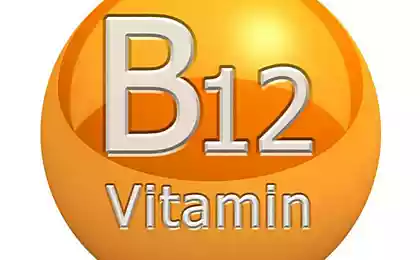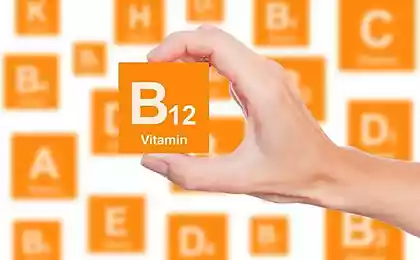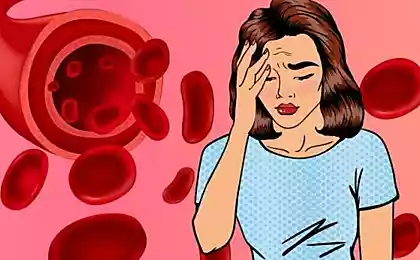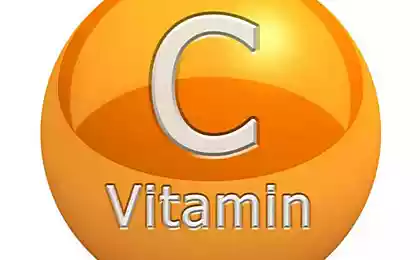479
Vitamin B12 — interaction, daily dose, indication
Vitamin B12 is the only water — soluble vitamin, which the body can accumulate, it is deposited in the liver, spleen, kidneys and lungs. To vitamin B12 include cyanocobalamin, the antidote agent hydroxocobalamin-commonly and 2 coenzyme forms of vitamin B12: methylcobalamin and deoxyadenosylcobalamin.
But vitamin B12 is often called also cyanocobalamin, because in the human body in this form gets a higher amount of vitamin B12. It turns out that cyanocobalamin is always vitamin B12, but B12 itself is not necessarily exactly the cyanocobalamin.
Three million five hundred ninety five thousand eight hundred eighty four
In 1926, he became the first known American physicians George Minot and William Murphy on the basis of the studies found effect on the course of malignant anemia eating large quantities of undercooked liver. Due to the fact that long-term consumption of the liver caused patients disgust, it was replaced in the future, different drugs, which represent the biologically active substances.
Antipanicescoe the substance of the liver appeared for the first time in crystalline form in 1948. Appeared thanks to a group of scientists Edward Rices and Karl Forexu (USA) and E. Smith (England). It Riches and Forex suggested this stuff called "Vitamin B12".
Thanks to the research of Smith, became known to the General structure of the vitamin, it is cobaltinitrite a substance that contains nitrogen. This gave the opportunity to conclude that vitamin B12 contains the cyano. Subsequently, the name cyanocobalamin stuck behind him.
But it took another 10 years to determine its structure by x-ray diffraction analysis. Did Dorothy Hodgkin, and for this she was awarded the Nobel prize in 1955.
The action of vitamin В12Он activates the synthesis of methionine and involved in the process of transfer of hydrogen. The ability to accumulate protein and increased synthesis manifests itself anabolic effect on the body. Cyanocobalamin has a pronounced hypolipidemic effect. Due to the fact that it prevents fatty infiltration of the liver, cells unable to oxygen in abundance in chronic and acute hypoxia. Cyanocobalamin makes stronger the immune system, increasing the phagocytic activity of leukocytes, improves the functioning of the reticuloendothelial system. Cognitive and emotional abilities are largely dependent on the security of the body cyanocobalamin. Vitamin B12 takes part in the functioning of the blood-forming organs: involved in the synthesis of nucleic acids and purine and pyrimidine bases, affects the accumulation of sulfhydryl compounds in red blood cells. It is necessary for a good appetite and normal growth, for the health of the reproductive organs of men and women, improves memory and concentration, increases energy, supports the nervous system, prevents anemia. The maintenance of vitamin B12 at an optimum level prevents confusion of thought, depression, insomnia, dementia, leads to normal blood pressure is low. Interaction of vitamin В12На absorption of vitamin B12 may affect the long-term application of potassium (for example, when taking diuretic drugs). To disturb the absorption of this vitamin can reception antihyperlipidemic remedies. Vitamin can affect the absorption of the vitamin from food. That is, if the vitamin C is adopted in large quantities. Antipsychotics and corticosteroid hormones wash this vitamin, its deficiency, the use of anti-TB drugs. The content of vitamin B12 in foods
Vitamin B12 — indications
Source: lubim-zhizn.ru/
But vitamin B12 is often called also cyanocobalamin, because in the human body in this form gets a higher amount of vitamin B12. It turns out that cyanocobalamin is always vitamin B12, but B12 itself is not necessarily exactly the cyanocobalamin.
Three million five hundred ninety five thousand eight hundred eighty four
In 1926, he became the first known American physicians George Minot and William Murphy on the basis of the studies found effect on the course of malignant anemia eating large quantities of undercooked liver. Due to the fact that long-term consumption of the liver caused patients disgust, it was replaced in the future, different drugs, which represent the biologically active substances.
Antipanicescoe the substance of the liver appeared for the first time in crystalline form in 1948. Appeared thanks to a group of scientists Edward Rices and Karl Forexu (USA) and E. Smith (England). It Riches and Forex suggested this stuff called "Vitamin B12".
Thanks to the research of Smith, became known to the General structure of the vitamin, it is cobaltinitrite a substance that contains nitrogen. This gave the opportunity to conclude that vitamin B12 contains the cyano. Subsequently, the name cyanocobalamin stuck behind him.
But it took another 10 years to determine its structure by x-ray diffraction analysis. Did Dorothy Hodgkin, and for this she was awarded the Nobel prize in 1955.
The action of vitamin В12Он activates the synthesis of methionine and involved in the process of transfer of hydrogen. The ability to accumulate protein and increased synthesis manifests itself anabolic effect on the body. Cyanocobalamin has a pronounced hypolipidemic effect. Due to the fact that it prevents fatty infiltration of the liver, cells unable to oxygen in abundance in chronic and acute hypoxia. Cyanocobalamin makes stronger the immune system, increasing the phagocytic activity of leukocytes, improves the functioning of the reticuloendothelial system. Cognitive and emotional abilities are largely dependent on the security of the body cyanocobalamin. Vitamin B12 takes part in the functioning of the blood-forming organs: involved in the synthesis of nucleic acids and purine and pyrimidine bases, affects the accumulation of sulfhydryl compounds in red blood cells. It is necessary for a good appetite and normal growth, for the health of the reproductive organs of men and women, improves memory and concentration, increases energy, supports the nervous system, prevents anemia. The maintenance of vitamin B12 at an optimum level prevents confusion of thought, depression, insomnia, dementia, leads to normal blood pressure is low. Interaction of vitamin В12На absorption of vitamin B12 may affect the long-term application of potassium (for example, when taking diuretic drugs). To disturb the absorption of this vitamin can reception antihyperlipidemic remedies. Vitamin can affect the absorption of the vitamin from food. That is, if the vitamin C is adopted in large quantities. Antipsychotics and corticosteroid hormones wash this vitamin, its deficiency, the use of anti-TB drugs. The content of vitamin B12 in foods
- Seafood
- Egg yolk;
- Meat;
- Cottage cheese, cheddar;
- Yeast;
- Plants (hops, soy, seaweed, green salad).
Vitamin B12 — indications
- For the prevention of some forms of anemia;
- To mitigate depression;
- When ringing in the ears (tinnitu) and multiple sclerosis;
- When numbness, tingling, neuralgia;
- In diseases of the liver;
- Dizziness, headaches, drowsiness, irritability;
- Sclerosis;
- Hallucinations;
- Paralysis;
- Disorders of vision and memory.
Source: lubim-zhizn.ru/
The car from Lego accelerated to 32 km / h + video
Shvets V. will be placed the library of the University in the Czech Republic























